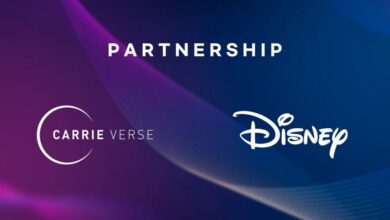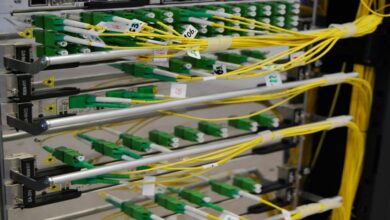Bridging the Gap: How Blockchain and the Internet Converge to Shape the Future

Introduction:
The intersection of blockchain and the internet represents a groundbreaking convergence of two revolutionary technologies that have the potential to reshape industries and redefine digital interactions. In this exploration, we delve into the symbiotic relationship between blockchain and the internet, uncovering their collaborative potential and the transformative impact on various sectors.
The Internet’s Evolution:
Since its inception, the internet has been a catalyst for innovation, connecting individuals and businesses across the globe. Short sentences emphasize its transformative power, enabling the seamless exchange of information, communication, and commerce. However, as the internet has evolved, it has also revealed vulnerabilities in security, trust, and data integrity.
Blockchain:
A Decentralized Ledger:
Enter blockchain, a distributed ledger technology that offers a solution to the internet’s shortcomings. Short sentences convey the concept of decentralization, where transactions are recorded across a network of computers, eliminating the need for intermediaries and enhancing transparency and security. This innovative approach to data management has the potential to revolutionize various industries, from finance and supply chain management to healthcare and beyond.
The Marriage of Blockchain and the Internet:
At its core, the integration of blockchain with the internet represents a marriage of transparency, security, and efficiency. Smooth transitions guide us through the collaborative potential of these technologies, highlighting their complementary strengths. By leveraging blockchain technology, internet-based platforms and applications can enhance data integrity, streamline processes, and foster trust among users.
Applications in Digital Identity:
One of the most promising applications of blockchain and the internet is in the realm of digital identity. Short sentences emphasize the importance of secure and verifiable identity management in an increasingly digital world. Blockchain-based identity solutions offer a secure and tamper-proof means of verifying identities, reducing the risk of identity theft and fraud.
From digital passports to self-sovereign identity platforms, blockchain technology enables individuals to maintain control over their personal data while securely sharing it with trusted parties. This has profound implications for industries such as banking, healthcare, and government, where identity verification is paramount.
Transforming Supply Chain Management:
The marriage of blockchain and the internet is also revolutionizing supply chain management, ensuring transparency, traceability, and accountability throughout the supply chain. Short sentences illustrate the challenges of traditional supply chain systems, where data silos and manual processes lead to inefficiencies and errors.
Blockchain technology provides a decentralized and immutable ledger that records every transaction and movement of goods, from raw materials to finished products. This enables stakeholders to track the provenance of products, verify authenticity, and ensure compliance with regulations. As a result, supply chains become more transparent, resilient, and responsive to consumer demands.
Enhancing Digital Payments:
In the realm of digital payments, blockchain and the internet are driving innovation and reshaping the way we transact. Short sentences convey the limitations of traditional payment systems, where intermediaries introduce complexity, delays, and fees. Blockchain-based cryptocurrencies offer a decentralized alternative, enabling peer-to-peer transactions without the need for intermediaries.
Smooth transitions guide us through the benefits of blockchain-based payments, including lower transaction fees, faster settlement times, and enhanced security. As a result, individuals and businesses can conduct transactions globally with greater efficiency and autonomy.
Empowering Content Creators:
Blockchain technology is also empowering content creators on the internet, revolutionizing the way digital content is created, distributed, and monetized. Short sentences highlight the challenges faced by creators in the digital age, including issues of copyright infringement, content ownership, and fair compensation.
Blockchain-based platforms offer solutions to these challenges by providing transparent and immutable records of ownership and transactions. Smart contracts enable creators to establish and enforce licensing agreements, ensuring that they receive fair compensation for their work. This fosters a more equitable and sustainable digital ecosystem where creators are rewarded for their contributions.
Challenges and Opportunities:
Despite the promise of blockchain and the internet, challenges remain in realizing their full potential. Short sentences convey the complexities of scalability, interoperability, and regulatory compliance that must be addressed. Smooth transitions guide us through the opportunities for innovation and collaboration in overcoming these challenges.
Conclusion:
The intersection of blockchain and the internet represents a transformative convergence that has the potential to revolutionize industries and redefine digital interactions. Moreover, short sentences and seamless transitions convey the collaborative potential of these technologies, highlighting their complementary strengths. Additionally, as blockchain and the internet continue to evolve and intersect, they will shape the future of finance, supply chain management, digital identity, and beyond. This will usher in a new era of transparency, security, and efficiency.





